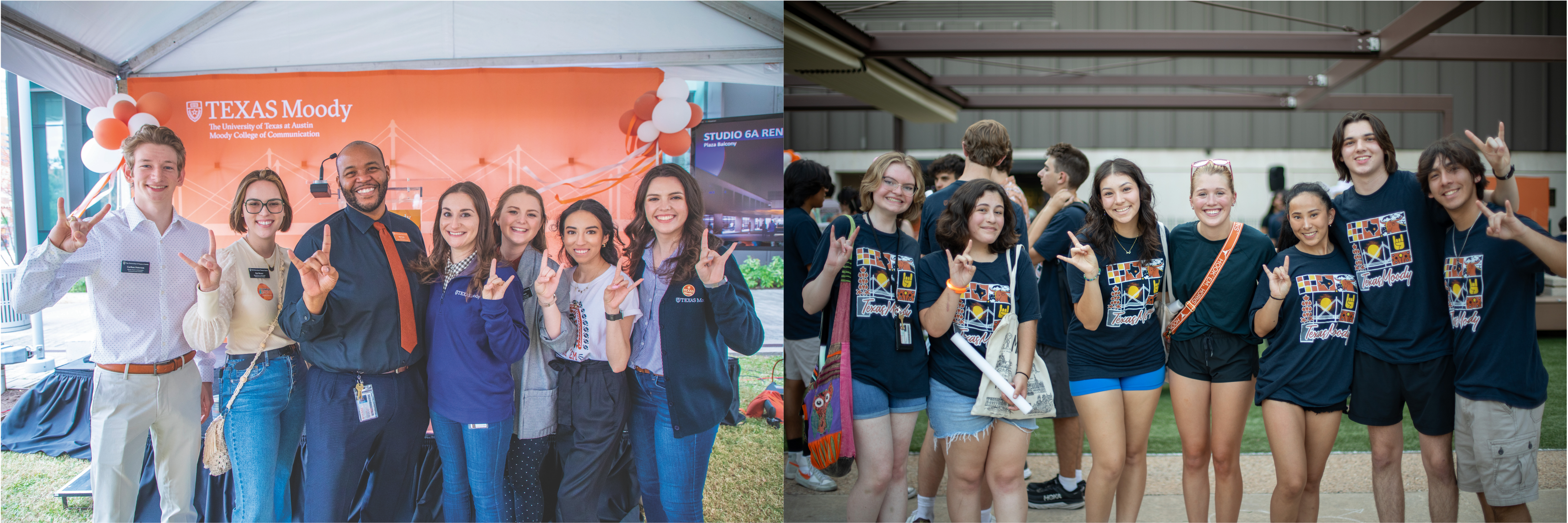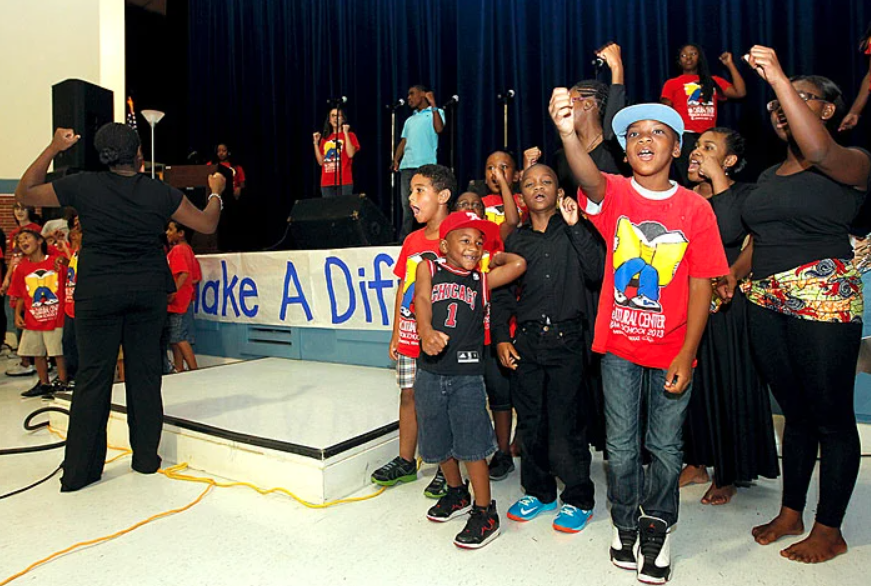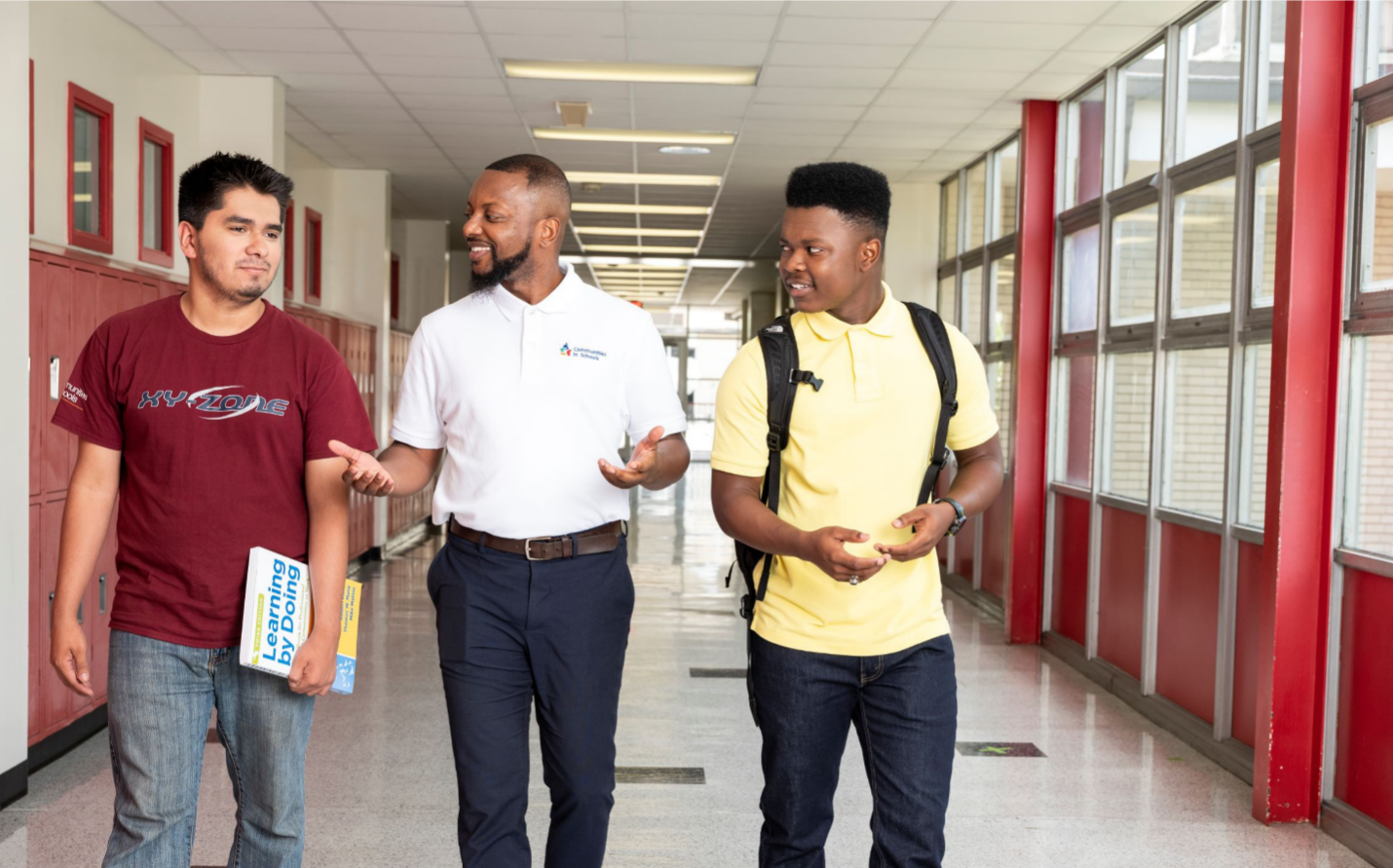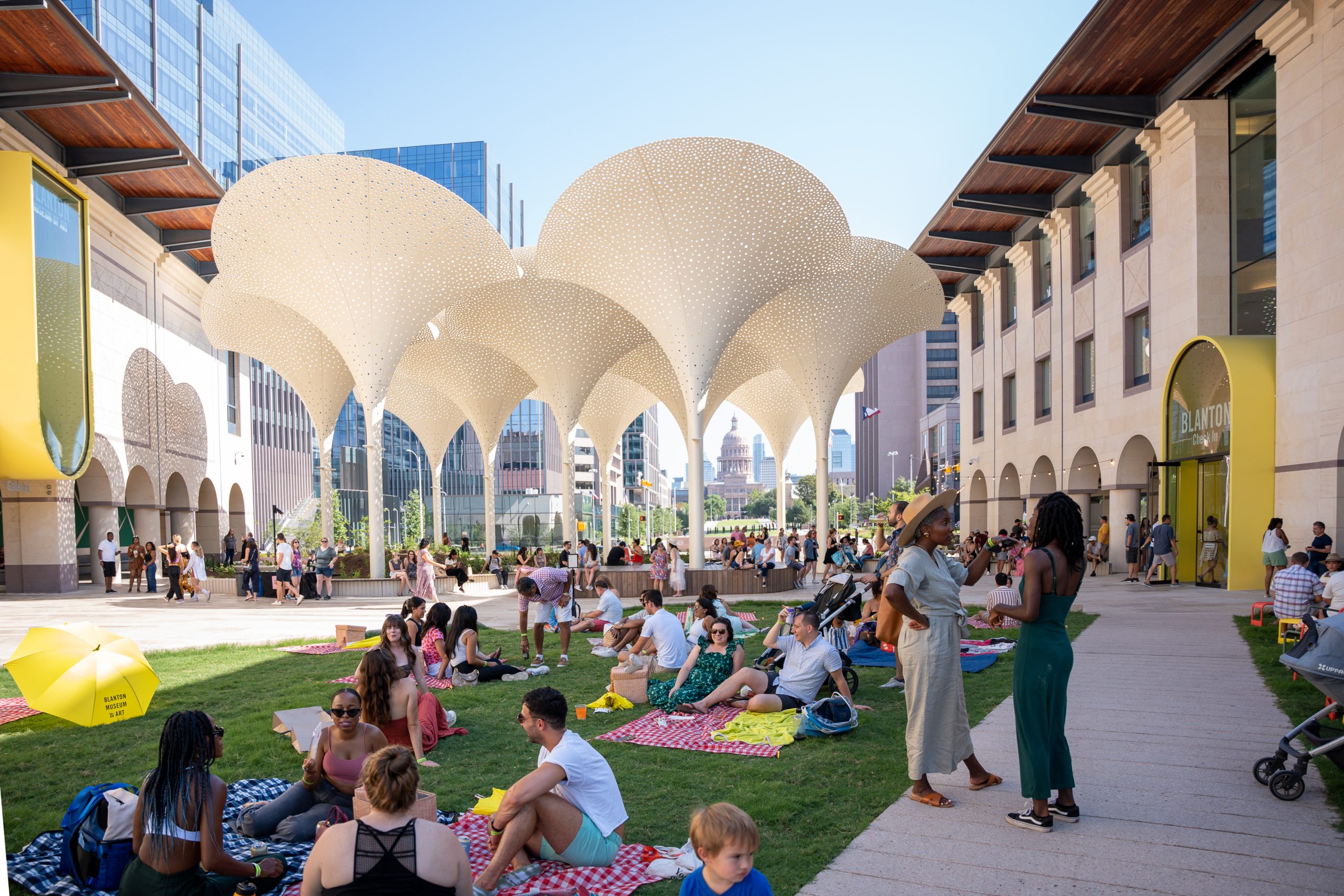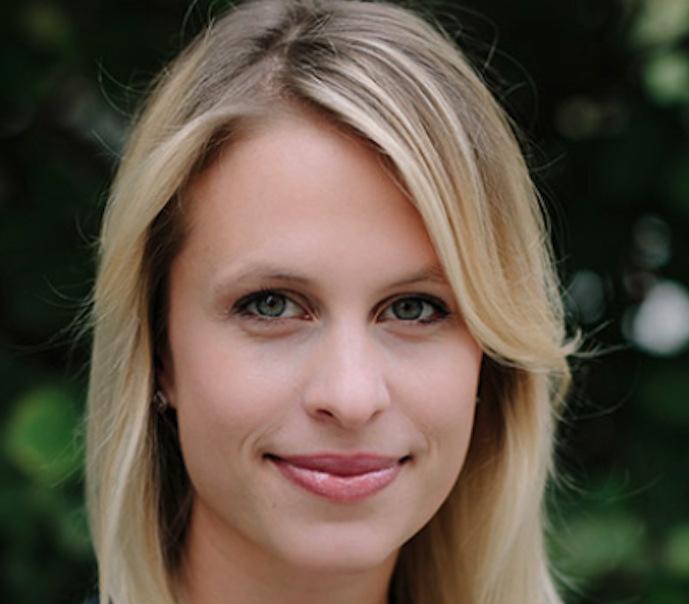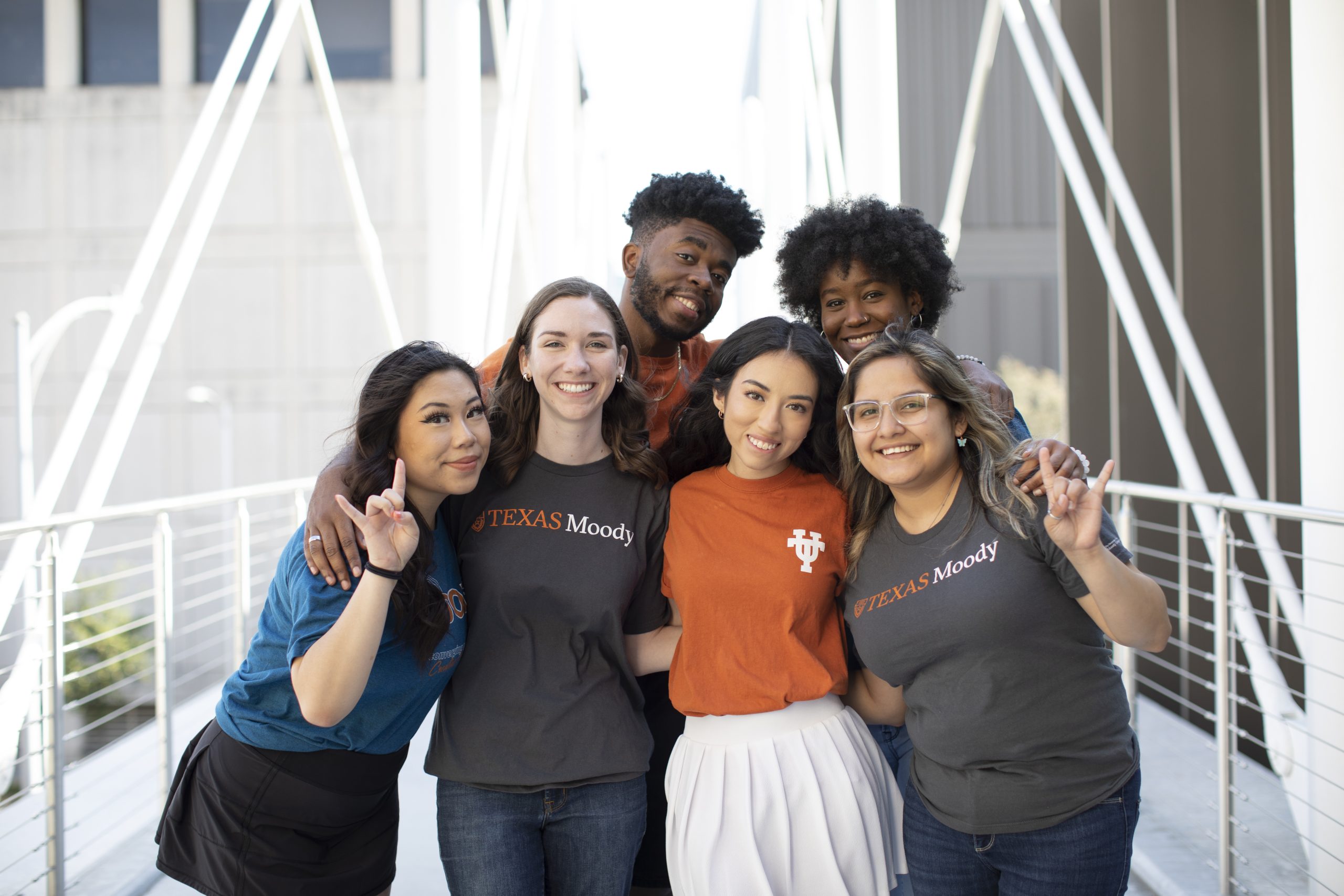
Moody Grant Recipient: Moody College of Communication at The University of Texas at Austin
Can you share with us the significance of the upcoming 10-year anniversary of the Moody College of Communication?
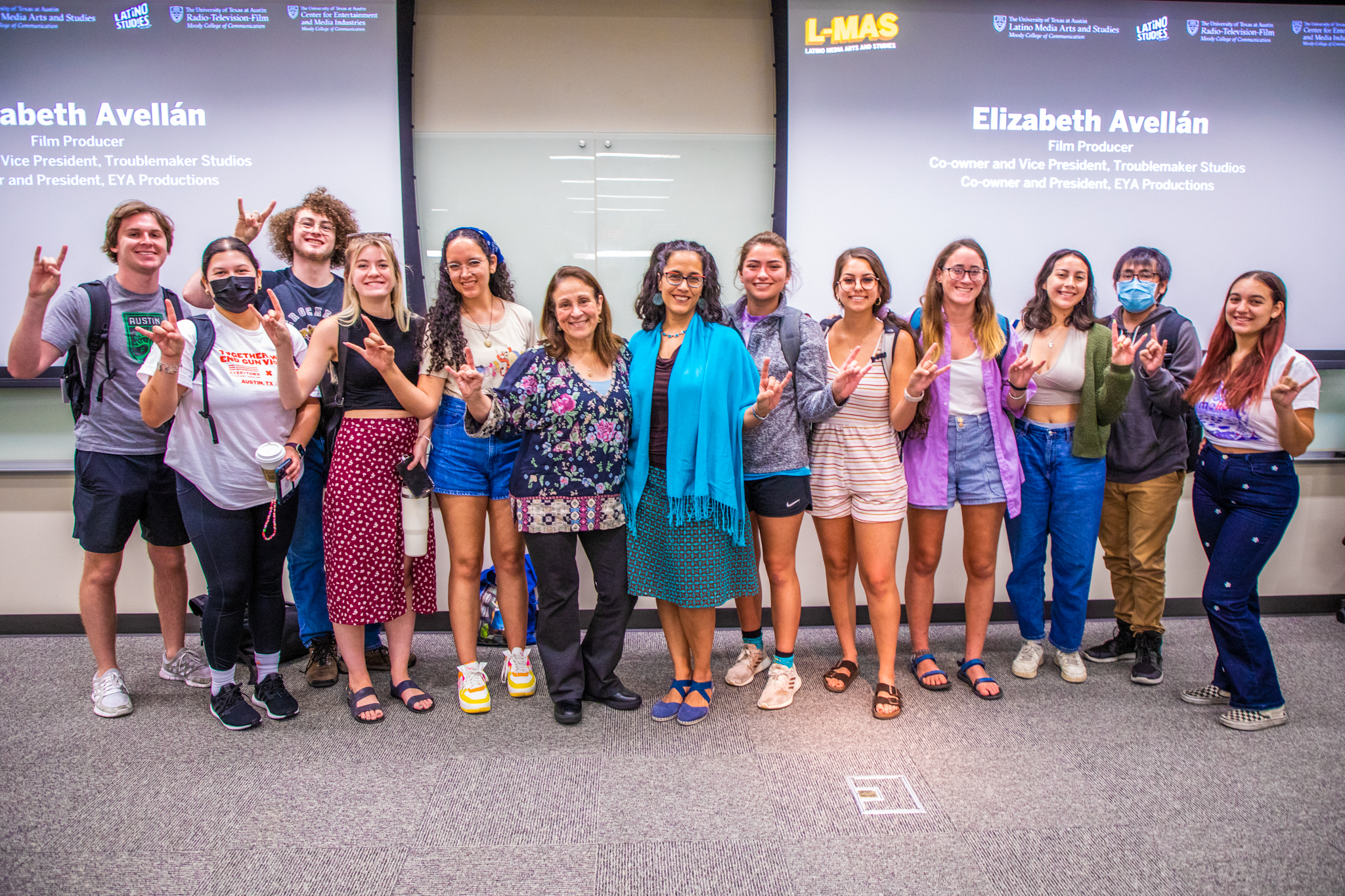 Ten years ago, the College of Communication at UT Austin received its largest philanthropic gift to date, $50 million from the Moody Foundation. With the donation, the college was renamed as the Moody College of Communication (Moody College).
Ten years ago, the College of Communication at UT Austin received its largest philanthropic gift to date, $50 million from the Moody Foundation. With the donation, the college was renamed as the Moody College of Communication (Moody College).
For us, Moody College has become much more than a name. As we look back over the past 10 years, we reflect on how this significant donation has enriched us as a college and enabled us to provide an even greater world-class education, produce even more cutting-edge research and offer increasingly more experiential learning opportunities, placing us at the top of all communication colleges in the country and the world.We will celebrate 10 years of being Moody with exciting events and collections of stories from our faculty, students and alumni about what it means to be Moody.
How has this donation impacted the Moody College of Communication and its programs? Can you provide some examples of specific initiatives or projects that have been made possible through the donation?
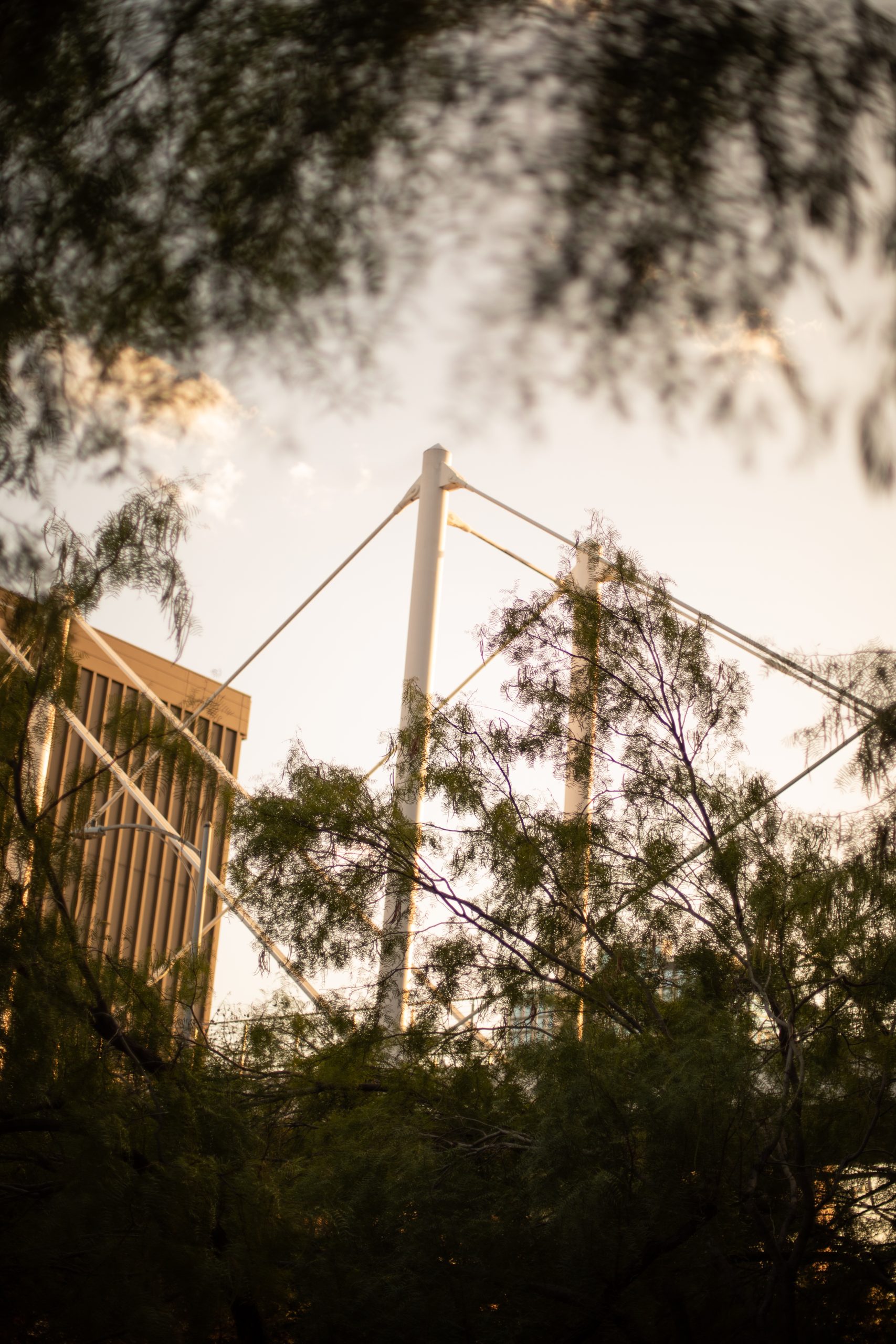 The Moody gift has enabled Moody College to compete with the top universities in the nation — both public and private — positioning UT Austin as the premiere university in the nation for communication scholarship and education.
The Moody gift has enabled Moody College to compete with the top universities in the nation — both public and private — positioning UT Austin as the premiere university in the nation for communication scholarship and education.
One of the most visual representations of the Moody gift is the suspension bridge that spans Dean Keeton Blvd. connecting the two sides of our campus. It brings together the historical and traditional with the modern and cutting edge — literally, figuratively and metaphorically. Our world faces many challenges and we believe the best hope for solving these challenges is by building bridges that are grounded in the scholarship, science and practice of communication.
However, the larger impact of this philanthropy can be felt in the experiences of our faculty, staff and students over the past 10 years.
With the $50 million gift, we have been able to hire the most forward-thinking faculty, support graduate student research, provide the most up-to-date technology and collaborative spaces and establish eight new centers, institutes and programs, which take an interdisciplinary approach to research and teaching in important communication related fields. These include: the Center for Health Communication, the Center for Media Engagement, the Center for Media and Entertainment Industries, the Center for Sports Communication and Media, Texas Immersive Institute and the Latino Media Arts and Studies Program.
The Moody gift continues to support these centers, as well as nine others, which reinforce our commitment to provide world-class teaching, scholarship and public service to our community, including offering minors that support and enhancing students’ degree plans.
The Moody gift has also enhanced our staff, helping us create a grants office and growing our development team, both of which have allowed us to bring in even greater gifts and funding to support our mission.
In total, these changes have helped to increase the caliber of our education at Moody, attracting increasingly more applicants every year. Today, our graduation rate eclipses that of UT as a whole at 82.5%. And this year, we will welcome our largest freshman class, bringing our total enrollment to over 5,000 students.
How do these programs prepare students for success in their careers?
In the past 10 years, Moody College has hired faculty whose knowledge encompasses some of the most important skills of our generation, ensuring our education keeps pace with changing technology and society. That means expertise in data science, coding, computational research, communication theory, audio engineering, political communication, AI, VR and more.

In addition to educating our students in these skills, we are also contributing new knowledge on these topics, coming up with discoveries that make us innovators in our fields. Our centers, institutes and programs help us achieve this scholastic mission.
The Center for Health Communication, for example, is forming cross-university partnerships between communication scholars and medical experts to conduct pioneering research that is changing the healthcare landscape. The center now works hand in hand with Texas Health and Human Services to create communications campaigns that help prevent opioid overdose and misuse and encourage tobacco cessation and other important health measures.
The Center for Media Engagement has fostered research that explores the state of journalism, media ethics, propaganda, mis- and disinformation and more. Most recently, Talia Stroud, the center’s founder and director, co-led an unprecedented, multi-university academic study alongside Meta to explore how social media influenced the 2020 U.S. Election.
Texas Immersive Institute, also supported by the Moody gift, has allowed our students to tell immersive stories using new technologies like AR and VR to bring people into new worlds that bridge the physical and digital spaces. Its students were nominated for two British Academy of Film and Television Arts (BAFTA) awards this year, in a new category for VR, AR and Immersive Entertainment. We are the only university that had two nominees.
The Moody gift has also supported Texas Student Media through the creation of The Drag Audio, Moody College’s in-house podcast production house that gives students one-of-a-kind experience in creating podcasts. The Drag’s first-ever podcast, “The Orange Tree,” rose to the Top 10 in Apple Podcasts. Students have had the opportunity to interview people on death row, survivors of mass tragedies and the daughter of a president.
These are just a few of the examples of the ways our students are obtaining a top tier education and skills to put the top of their fields, including advertising, public relations, marketing, corporate communication, data analytics, journalism, radio, film, podcasting, audio engineering, speech, language and hearing sciences, nonprofit work and more. We owe these successes to the support we have received as a result of the Moody gift.

How many students have been part of the Moody College of Communication in the past 10 years?
Since Fall 2013, Moody College conferred over 15,000 degrees including Bachelor’s, minors, Master’s doctorates and certificates.
What goals do you have for the future of the Moody College of Communication?
Last year, Moody College unveiled its new 10-year Strategic Plan, which will inform the college’s
priorities over the next decade to ensure it invests in the people, places and programs that keep it among the top communication colleges in the world.
There have been many shifts in the world – and the communication landscape – in recent years, and Moody College must constantly evolve to meet the demands of a changing society and workforce.
So far, we have identified more than a dozen initiatives to help meet these demands, including recruiting diverse faculty and staff; ensuring more pathways to career growth; strengthening community and culture; modernizing facilities; increasing strategic partnerships with targeted industries like entertainment and tech; expanding our international footprint with global research and partnerships; strengthening undergraduate advising and career coaching; improving marketing to share about Moody College and its impact; improving student access to new technologies; expanding continuing professional education, master’s programs and internship opportunities; updating curricula; obtaining high priority grants and industry funding to support research; and increasing collaboration across centers, institutes and programs.
One of our main goals is to ensure that our students are able to pursue experiential learning opportunities, domestic and study abroad programs like UTLA and UTNY and unpaid internships in their fields regardless of economic barriers.
